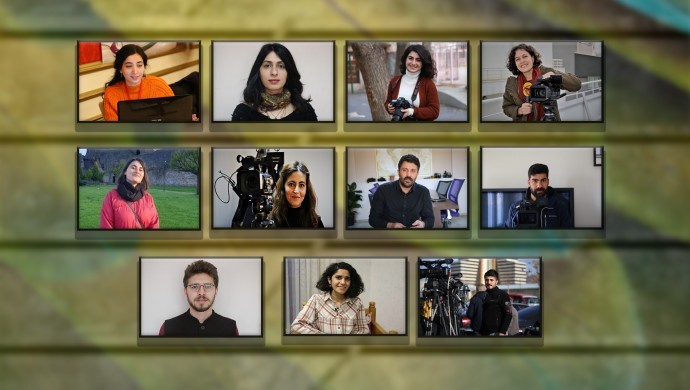Eleven Kurdish journalists appeared in court for the first time on Tuesday after nine of them were put in pretrial detention on terrorism charges last year, the Gazete Duvar news website reported.
Police in October took into custody 11 journalists in İstanbul and Ankara as well as other cities including Diyarbakır as part of an investigation conducted by the Ankara Chief Public Prosecutor’s Office. Seven of the journalists work for the pro-Kurdish Mezopotamya news agency, including its editor-in-chief Diren Yurtsever, and three for JinNews.
Zemo Ağgöz, one of the detained journalists from Mezopotamya who had a one-and-half-month-old baby at the time, and Mehmet Günhan, who once worked as an intern at Mezopotamya, were released while the other nine journalists were arrested.
The first hearing in the trial of 11 journalists was held at the Ankara 4th High Criminal Court on Tuesday. The journalists face charges of membership in the terrorist Kurdistan Workers’ Party (PKK).
The hearing was followed by representatives from local and international press organizations and civil society groups.
One of the jailed journalists, Öznur Değer, a JinNews reporter, said in her defense statement that she is standing trial for three reasons: for being a woman, a Kurd and a journalist.
Kurdish journalists in Turkey frequently face legal harassment, stand trial and are given jail sentences for covering issues related to Kurds and the PKK, considered a terrorist organization by Turkey and much of the international community.
Turkey is ranked 165th in the Reporters Without Borders (RSF) 2023 World Press Freedom Index, among 180 countries, not far from North Korea, which occupies the bottom of the list.
Dozens of critical journalists were jailed in Turkey, while many media outlets were closed down in the aftermath of a coup attempt in 2016.
The arrest of the nine journalists came at a time when the Turkish Parliament approved in October a tough pre-election law that could see reporters and social media users jailed for up to three years for spreading “fake news.”
The new measures for the media came before general and presidential elections held on May 14.
Opposition parties and journalists’ unions protested the new rules before and during the debates in the parliament.
